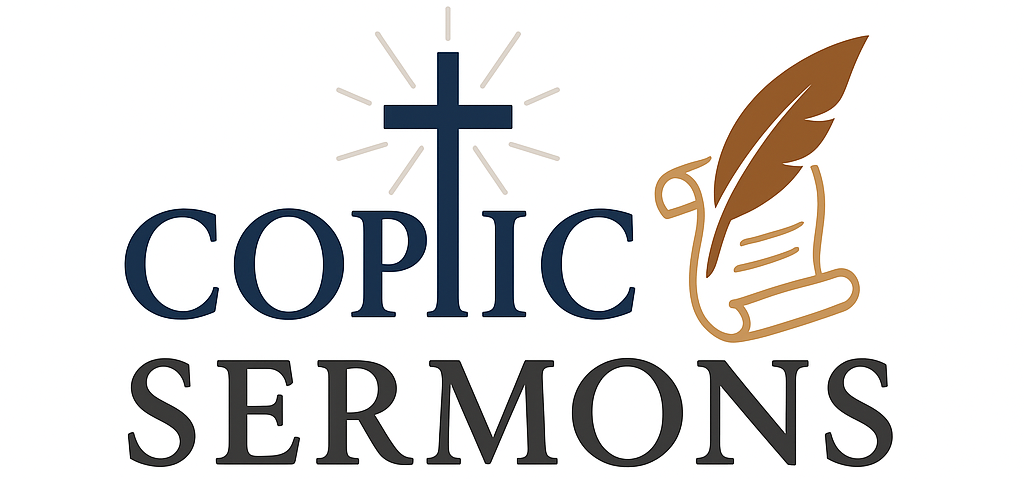A Call to Complete Renewal – Sunday Of The Paralytic
In the Name of the Father, and the Son, and the Holy Spirit, One God. Amen. May the blessing of the Father who calls us and His Only Begotten Son Jesus Christ who saves us, and the Holy Spirit who sanctifies and transforms us be with us all, that we may hear His word and bear fruit—thirty, sixty, and a hundredfold. Amen.
On this blessed Fifth Sunday of the Great Lent—the Sunday of the Paralytic—our hearts turn toward a remarkable event recounted in the Gospel of Saint John (5:1–18), where we witness the powerful compassion of our Lord Jesus Christ. Near the Sheep’s Gate in Jerusalem stood the Sheep’s Pool, encircled by five grand porches supported by ornate pillars beneath a domed roof. Here, countless sick people suffering from various illnesses anxiously awaited the stirring of the water—a stirring believed to herald immediate healing for the first person to step in.
Among them was a man who had endured paralysis for thirty‐eight long years—a lifetime marked by pain, helplessness, and loneliness. When our compassionate Lord saw him, He approached gently and asked a profound question: “Do you want to be made whole?” In humble, quiet despair, the paralytic replied, “Sir, I have no one to help me into the pool when the water is stirred.” In response to this sincere admission, Christ spoke with divine authority and mercy, commanding, “Rise, take up your bed, and walk.” Immediately, strength flowed into the paralytic’s body; he arose, picked up his bed, and walked joyfully, praising God.
This miracle, performed on the sacred Sabbath during Passover, vividly reminds us of our Savior’s infinite mercy and compassion. Yet it calls us to reflect even deeper—not only on our physical ailments but also on the paralysis that sin brings upon our souls. As the ancient homilists teach, “Do you want to be made well? Our bodily infirmities often mirror a deeper spiritual stagnation—where sin has robbed us of the power to rise and move toward the light.
The Paralytic’s Condition and Our Spiritual Inertia
Christ’s tender inquiry, “Do you want to be made well?” pierces the very heart of our human condition. The paralytic’s response, born of long isolation and resignation, reveals not just a physical barrier but a soul weighed down by sin. His inability to secure help from others reflects the spiritual paralysis that can grip each of us—whether due to personal failures, destructive habits, or an entrenched sense of hopelessness.
Reflect, my beloved, on the varied portraits of our human frailty. In our recent 3 weeks of meditations, we encountered the prodigal son—a young man in his twenties, restless yet capable of rapid transformation when the call of repentance sounds. Then we met the Samaritan woman, whose life in her thirties or forties was transformed at the well by the living water of Christ. Today, the paralytic at Bethesda stands as a symbol for those among us—even in the mature years of life, in our fifties or beyond—whose long entrenchment in sin has rendered them almost immobile. The miracle of Bethesda assures us that Christ’s healing is not confined to the vigor of youth; His tender call extends to every stage of life.
Healing That Transcends Time and Transforms Lives
Imagine a man in his fifties, burdened by decades of regret, trapped in a cycle of destructive habits and isolation. Like the paralytic, his life may seem defined by what has held him back—be it addiction, broken relationships, or lost opportunities. Yet when he hears Christ’s gentle yet commanding voice, he is invited to rise, to pick up the “bed” of his past and walk anew. Likewise, though marked by rebellion, the youthful prodigal retains the spark of transformation when he turns toward repentance. And the Samaritan woman, scarred by a troubled past, finds in the living water the cleansing that restores her dignity and purpose.
These practical examples remind us that Christ’s healing is total—a renewal of body, spirit, and mind. His invitation is radical: to leave behind not only physical infirmity but the paralysis of sin that severs our relationships with God and with one another.
A Call to Respond
St. John Chrysostom exhorts us to be zealous for virtue, recognizing that true healing demands active participation. When Christ said to the paralytic, “Sin no more, lest a worse thing come upon you” (John 5:14), He was not merely curing a physical ailment but calling for a complete transformation of the human heart and soul. The healing at Bethesda is a vivid emblem of God’s power to renew and restore—even when the weight of our past seems insurmountable.
Beloved, whether you are in the bloom of youth, in the mid-life season, or the reflective years of maturity, ask yourself: “Do I truly desire to be made well?” We, inspired by the examples of the prodigal son, the Samaritan woman, and the paralytic at Bethesda, open our hearts to the transformative grace of Christ. Let us not remain immobilized by our sins or the inertia of a life unexamined. Instead, rise, pick up your bed of burdens, and walk in the radiant light of God’s mercy.
As we behold this holy icon—depicting the paralytic bowing reverently in gratitude while Christ lovingly blesses him—let it remind us that our Savior stands ready to heal every aspect of our being. In the words of our Lord, may we answer with a resounding, “Yes, Lord, I want to be made well,” so that we may be restored—body, soul, and spirit—to a life of active, joyful service in His kingdom.
May the Lord bless us, transform our hearts and minds, that our homes may stand on the Rock, our hands serve in the harvest, and our hearts long for Heaven. Amen.
